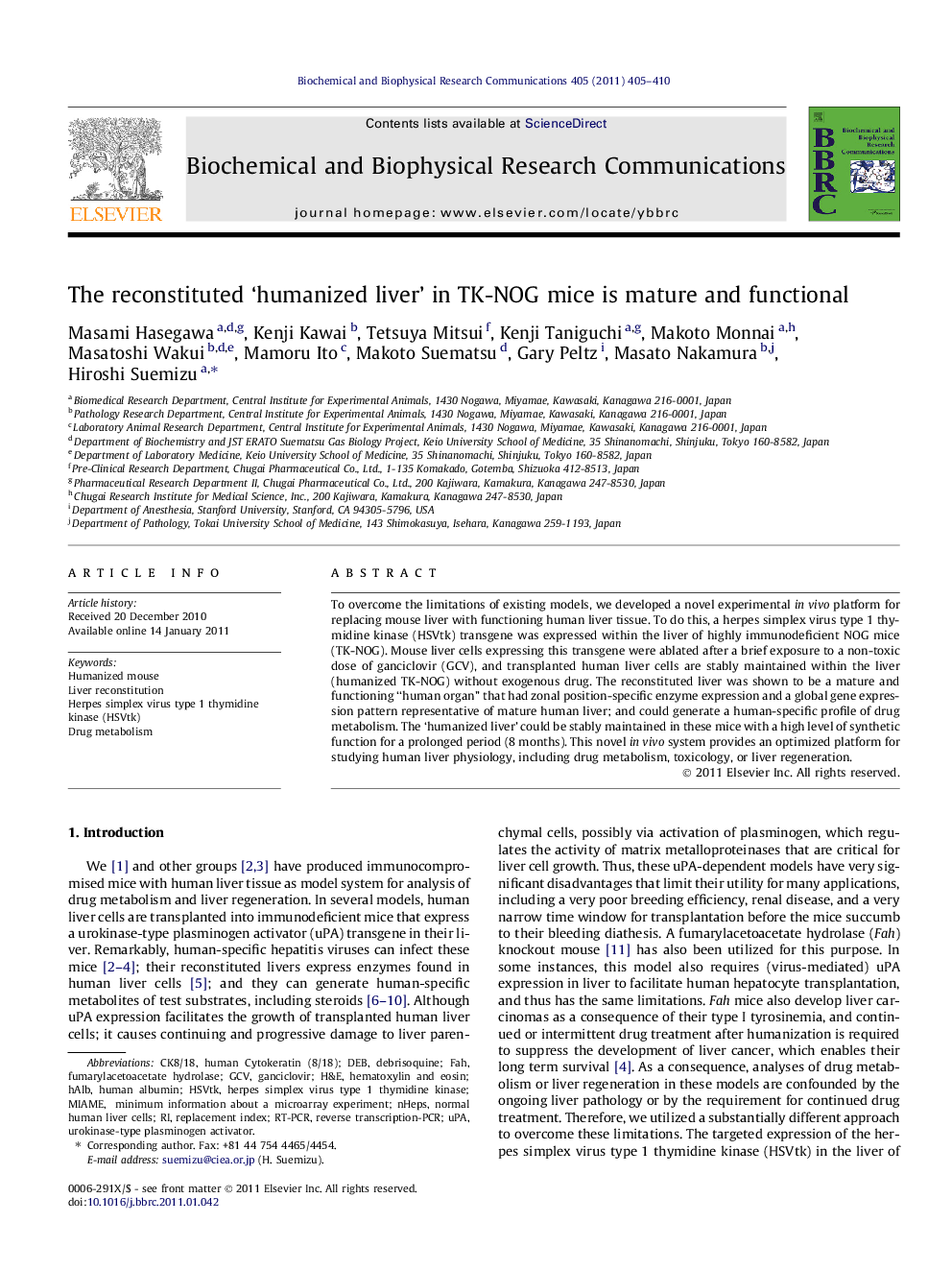| Article ID | Journal | Published Year | Pages | File Type |
|---|---|---|---|---|
| 1930677 | Biochemical and Biophysical Research Communications | 2011 | 6 Pages |
To overcome the limitations of existing models, we developed a novel experimental in vivo platform for replacing mouse liver with functioning human liver tissue. To do this, a herpes simplex virus type 1 thymidine kinase (HSVtk) transgene was expressed within the liver of highly immunodeficient NOG mice (TK-NOG). Mouse liver cells expressing this transgene were ablated after a brief exposure to a non-toxic dose of ganciclovir (GCV), and transplanted human liver cells are stably maintained within the liver (humanized TK-NOG) without exogenous drug. The reconstituted liver was shown to be a mature and functioning “human organ” that had zonal position-specific enzyme expression and a global gene expression pattern representative of mature human liver; and could generate a human-specific profile of drug metabolism. The ‘humanized liver’ could be stably maintained in these mice with a high level of synthetic function for a prolonged period (8 months). This novel in vivo system provides an optimized platform for studying human liver physiology, including drug metabolism, toxicology, or liver regeneration.
Research highlights► A novel experimental in vivo platform for replacing mouse liver with human cells. Administration of GCV ablates the liver of HSVtk transgenic immunodeficient NOG mice. Transgenic TK-NOG mice maintain the transplanted human liver cells over 8 months. Reconstituted liver shows humanized profiles of gene expression and drug metabolism. This novel humanized model provides many facets of human liver biology.
